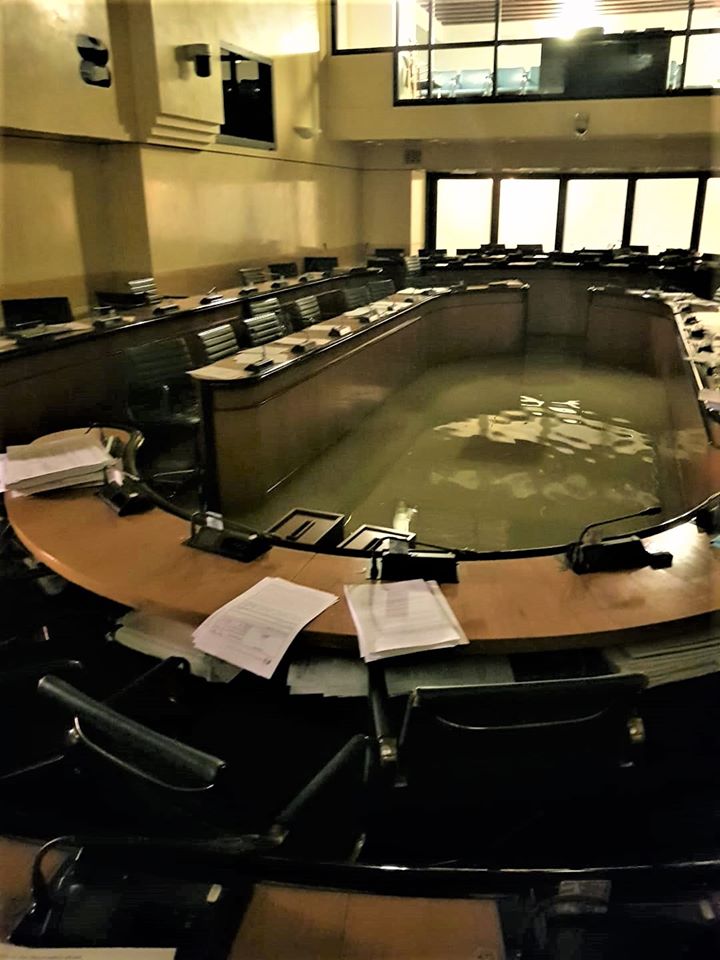
Even though Venice has been hit with its worst flooding in 50 years, the regional council voted on Wednesday to reject a number of measures to combat climate change. Then, immediately following the meeting, the council’s chambers flooded for the first time in its history.
“Ironically, the chamber was flooded two minutes after the majority League, Brothers of Italy, and Forza Italia parties rejected our amendments to tackle climate change,” wrote the council’s environment committee chair, Andrea Zanoni, on Facebook, sharing photographs of the flooded rooms, which sit on the city’s Grand Canal.
Zanoni had proposed measures to adopt renewable energy, replace diesel buses with cleaner and more efficient vehicles, and reduce the impact of plastics. The budget that was approved, however, “does not contain any concrete action to counteract climate change,” Zanoni said.
Last year, UNESCO, the United Nations’s cultural preservation branch, warned that Venice was at severe risk from rising sea levels.
An image of Venice’s region council chambers posted by environment committee chair Andrea Zanoni. Photo via Andrea Zanoni on Facebook.
The council’s president, Roberto Ciambetti, is a member of Italy’s far-right League party, which doesn’t exactly have a great track record when it comes to climate change action. Matteo Salvini, the League’s leader, and the country’s deputy prime minister until September, voted against ratifying the Paris Agreement.
Ciambetti told CNN that Zanoni’s Facebook post was “propaganda” and that the regional government had invested heavily over the last three years in efforts to combat air pollution, but acknowledged that the flooding took place just after the vote.
The Venice floods, estimated to have already caused hundreds of millions of dollars in damage, coincide with the seasonal high tide known as Acqua Alta. The floods, added Zanoni, are “due among other things to the many factors of climate change, with the rise of the water of the seas, due to the melting of the glaciers due to global warming.”
People walk across the flooded St. Mark’s Square on November 14, 2019, in Venice. Photo by Filippo Monteforte/AFP. Courtesy of Getty Images.
Many of Venice’s cultural institutions are currently closed, although protective measures have limited the damage to the city’s art. Plagued by corruption, the MOSE Project flood barrier is projected to have ballooned in cost to €7 billion ($9.5 billion) by the time it is completed in 2022, over a decade late.